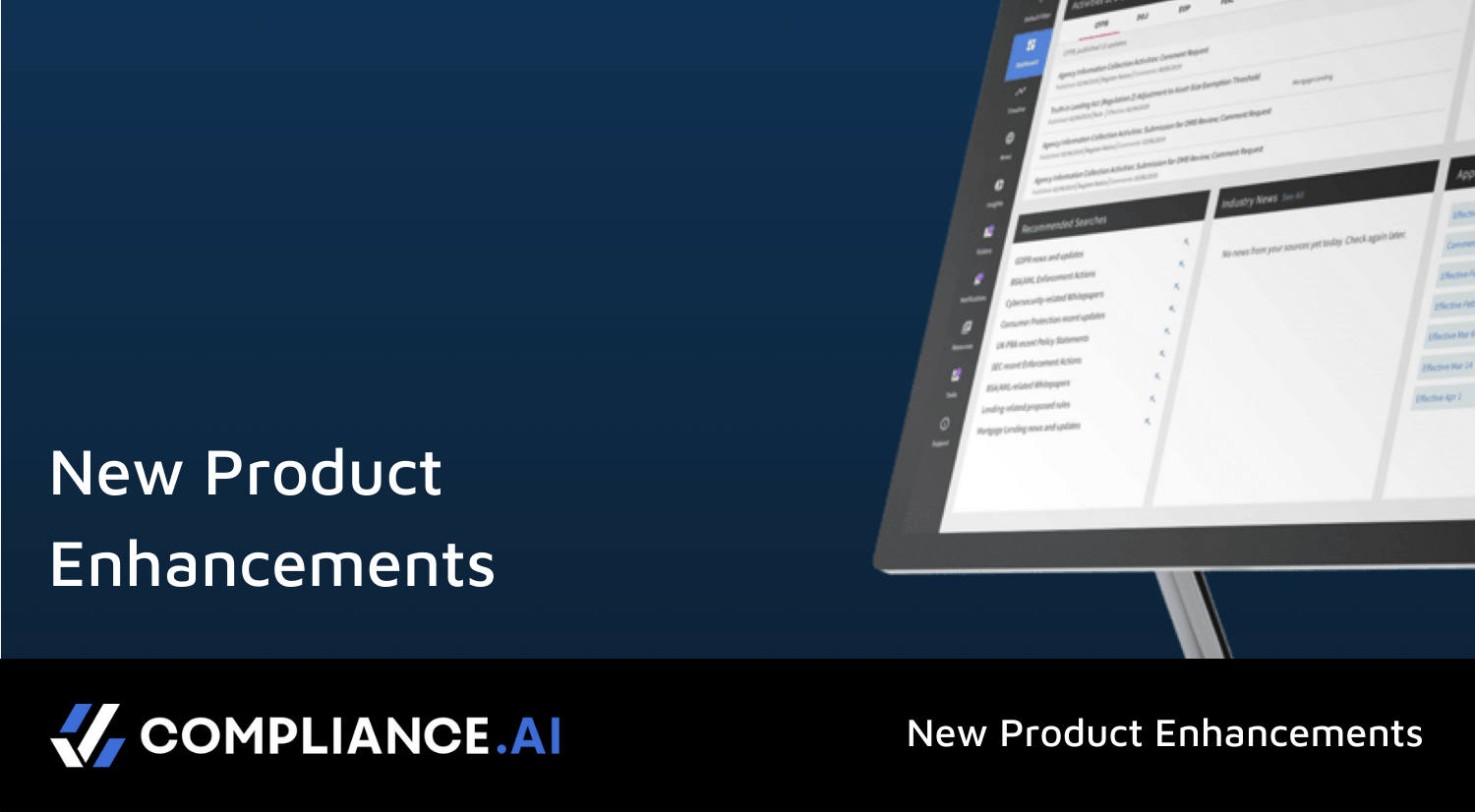There’s no doubt that risk and regulatory requirements have become even more pronounced in an increasingly remote workplace environment.
According to Nasdaq’s Annual Global Compliance Survey 2020 , 74% of global finance firms deem organizational compliance standards to be “highly important.”
What’s more, 59% of survey respondents say compliance “deserves a seat at the table” when mapping out a company’s overall strategic direction. The challenge is that most legal, risk, and compliance teams are too busy trying to keep up with regulatory changes. According to an Oliver Wyman report, “Financial services regulation has expanded at an astounding rate since the financial crisis – and, consequently, so has the cost of regulatory compliance.” Legal, risk, and compliance teams need to find ways to reduce costs and save time so that they can shift their attention to more strategic initiatives.
That’s where RegTech enters the picture. According to a 2020 Thomson Reuters study “32% of firms said their budget for RegTech solutions would grow in the next 12 months.” More financial services firms are investing in RegTech because compliance teams find that automating manual processes provides a more efficient and less expensive method to curb corporate risk and ensure compliance. These advantages spring from applying “digital technology – including APIs, artificial intelligence (AI) and robotic process automations (RPAs) – to the now numerous and burdensome tasks required to comply with regulations.”
RegTech for Competitive Advantage
There’s another big reason why firms are turning to RegTech – the technology provides competitive advantage. “The potential of RegTech extends beyond making compliance more efficient,” the Oliver Wyman report states. “The data and analytic techniques that satisfy regulators’ demands can also deliver commercially valuable insights about customers and markets.”
How does RegTech deliver competitive advantage?
RegTech delivers improvements in three key corporate areas – let’s call them the “Three C’s” – cost, customers, and communications.
Cost. Companies are finding that an investment in RegTech leads to more efficiency and productivity in compliance activities. For example, RegTech will deliver $1 billion in cost savings in key “know your customer” areas by 2024, according to a recent study by Junipier Research.
RegTech does so by automating the manual tasks for handling corporate risk and compliance activities. With RegTech, the time required to analyze data for critical tasks like reviewing audits, monitoring suspicious activity, and handling due diligence is reduced from days or weeks to a few hours. With more free time, company team members can move on more profit enter-oriented tasks and add more value to the corporate bottom line.
Customer relationships. Companies can leverage data culled from compliance-driven data analysis to improve customer care outcomes and build more robust brands in the process. Insights gained from RegTech data can:
- Assess customer care outcomes
- Provide stronger customer support
- Avoid bad publicity stemming from regulatory failures
- Steer the company to use data to build stronger customer engagement experiences, and turn those experiences into stronger profit margins for the company.
After all, companies want to do business with companies that have sterling brands and solid reputations. There’s no better way to get that business than by improving customer experience. Having the data on hand to do so gives companies a major competitive advantage.
Communications. Getting better data through RegTech tools that include artificial intelligence and machine learning help company communicators make better decisions (think logistics, research, sales and marketing team members, specifically).
RegTech does a great job of developing fresh data from customer interactions. Companies can use that data to figure out what customers want from a company, for example, new or different products, better delivery options, or different ways to pay for products and services.
Having that data not only helps companies understand what sales, marketing and operational strategies are working or not, it gives them a more clear and compelling look into what the customer wants and expects from the company.
With more robust data analytics, C-level executives can also better understand how team members in different departments (like having a better grip on top performers in sales and which managers are handling team training sessions) are performing on the job.
The Takeaway on RegTech and Competitive Advantage
As RegTech moves toward center stage in corporate strategy circles, company decision makers are beginning to see how applying digital technology to compliance can extend far beyond traditional risk and regulatory management outcomes.
Now, RegTech is proving to be a valuable technology tool in overall company performance, productivity and profit outcomes, too. Having the data analysis tools on hand that RegTech provides can provide companies valuable insight into customer behaviors and habits. That knowledge can lead directly to better interactions with customers and to more successful customer satisfaction levels.
Those outcomes are instrumental in building company reputational brands that customers stick to – and that’s the best competitive advantage of all.

 Automatically monitor regulatory updates to map to your internal policies, procesures and controls. Learn More
Automatically monitor regulatory updates to map to your internal policies, procesures and controls. Learn More



